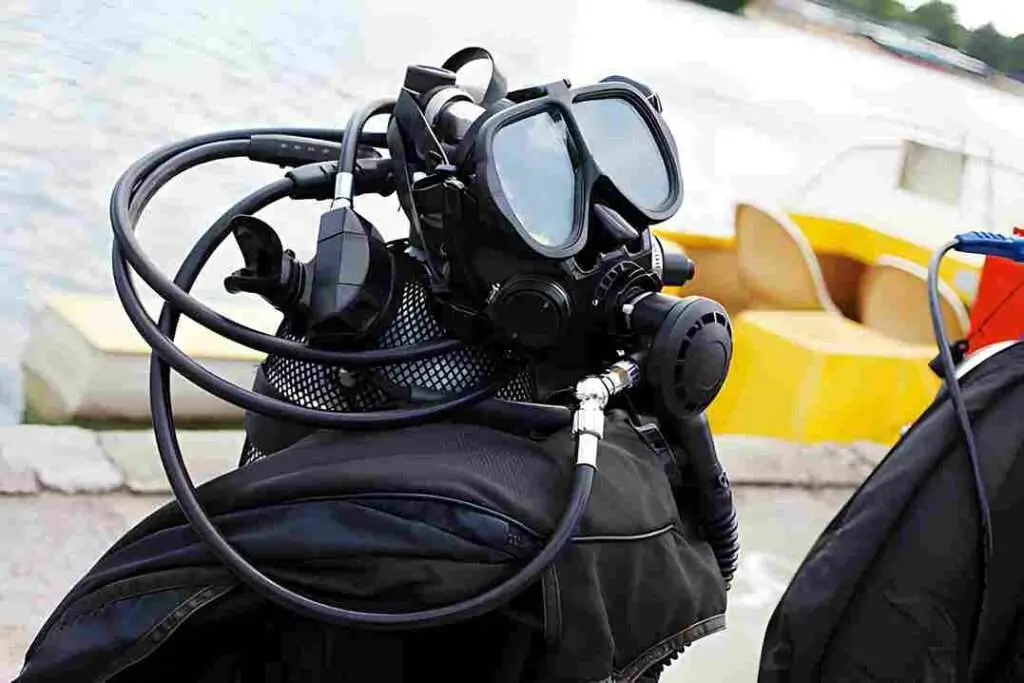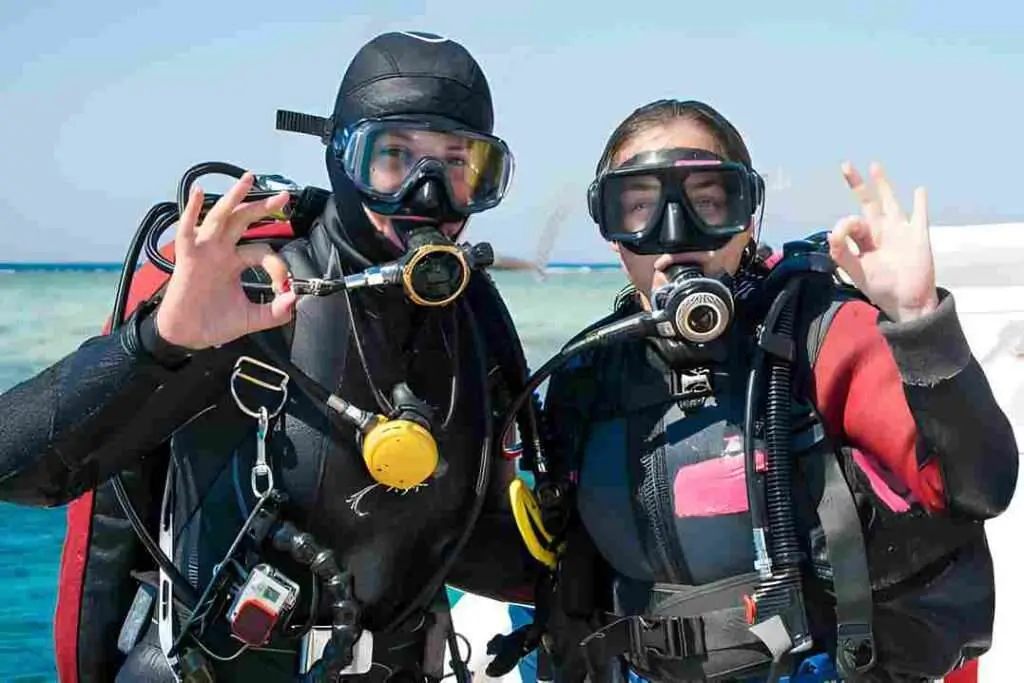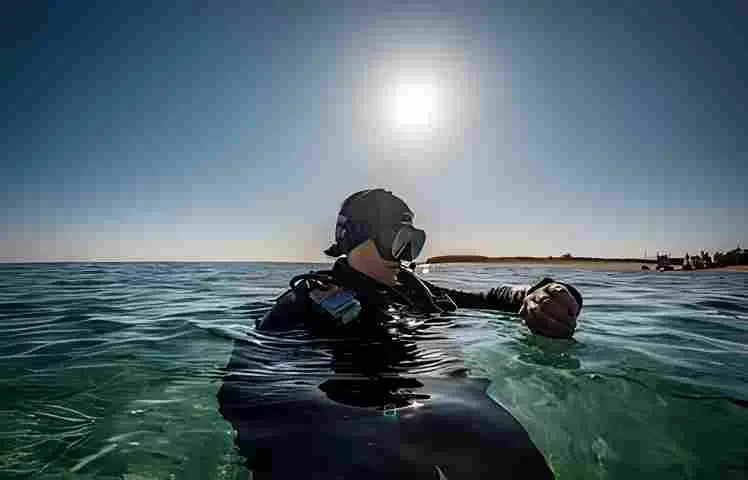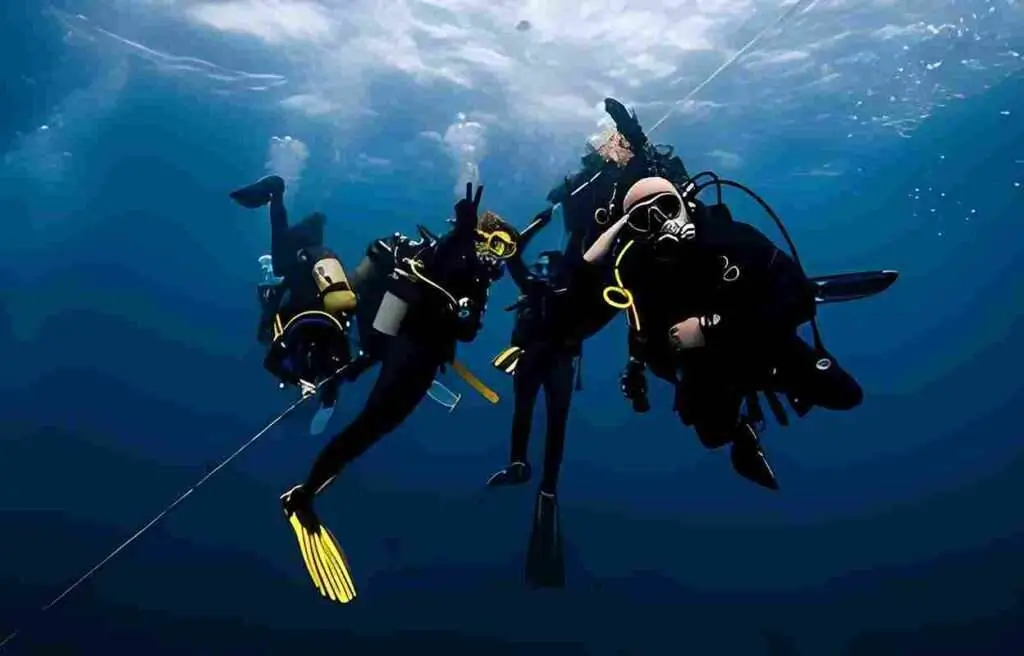Diving can be an enjoyable and exhilarating experience, but it can also be risky without proper preparation and insurance coverage. Whether you are a recreational or professional diver, having the right Diving insurance is crucial for your safety and financial protection. In this article, we will guide you through the basics of diving insurance coverage, highlighting its benefits, and providing practical tips on how to choose the right policy for your needs.
Key Takeaways
- Diving insurance is essential for divers, protecting against potential accidents, and financial loss.
- There are different types of diving insurance policies available, including recreational and professional options, to suit various diving needs.
- Insurance for Diving gear and travel can also provide added peace of mind for divers.
- Evaluating diving insurance providers and understanding policy exclusions and limitations is necessary to make an informed decision on insurance coverage.
- Choosing a reliable diving insurance policy can provide reassurance and security for your diving adventures.
Understanding Diving Insurance
Diving insurance comes with a range of offerings, from recreational to professional coverage. As a diver, it’s essential to have the right kind of insurance coverage to protect yourself from unexpected and costly accidents and incidents. Let’s take a closer look at the different types of diving insurance available, their coverage specifics, and what benefits they offer you.
Underwater Diving Insurance
Underwater Diving insurance is specifically designed for those who enjoy exploring the depths of the ocean for recreational purposes. It offers coverage for diving-related accidents and injuries, including emergency medical expenses, travel expenses for medical evacuation, and more.
Recreational Diving Insurance
Recreational diving insurance provides coverage to those who dive for leisure purposes. It offers protection for accidental injury, loss, and damage to Diving equipment, and provides liability coverage for incidents involving non-divers.
Professional Diving Insurance
Professional Diving insurance is designed for those who make a living from diving, such as instructors, divemasters, and dive operators. It offers coverage for professional liability, equipment damage, and more.
Before selecting an insurance policy, take the time to understand what each policy type offers in terms of coverage and benefits. Consider the type of diving you plan on doing, your skill level, and what aspects of coverage are most important to you. With the right diving insurance, you can have peace of mind while exploring the underwater world.
Accidents and Diving Insurance
Diving accidents can happen, but you shouldn’t need to worry about being financially responsible for unforeseen damages or injuries. That’s where dive accident insurance and dive liability insurance come in.
Dive accident insurance is specifically designed to cover medical expenses in case of an accident while diving. Meanwhile, dive liability insurance protects in case of accidents caused by or involving divers, offering coverage for legal fees, settlement expenses, and more.
| Dive Accident Insurance | Dive Liability Insurance |
| Covers medical expenses for diving accidents | Provides coverage for liabilities resulting from diving accidents |
| May include emergency evacuation expenses | Covers legal fees and settlement costs for lawsuits related to diving accidents |
| May have limitations or exclusions based on the nature of the accident or the condition of the diver | May have limitations or exclusions based on the nature of the liability or the type of activity |
Having both types of insurance can provide complete coverage in the event of a diving accident, allowing you to focus on your recovery and avoid financial stress.
It’s essential to select a reputable diving insurance provider and carefully examine policy terms and conditions to ensure you have the necessary coverage for your specific diving needs.
Protecting Your Dive Equipment

As a diver, your equipment is essential to your experience and enjoyment underwater. However, Diving gear can be expensive, and accidents or incidents can happen, leading to costly repairs or replacements. That’s why diving equipment insurance is crucial.
Having diving equipment insurance can provide coverage for various risks, including:
| Risk | Coverage |
| Loss or damage | Repair or replacement of equipment |
| Theft | Compensation for stolen gear |
| Accidental damage | Cost of equipment repairs or replacement |
Diving equipment insurance can be included as part of a broader diving insurance policy or purchased separately. It’s essential to understand the coverage limits, deductibles, and exclusions of your policy to ensure that they align with your needs and budget.
When choosing equipment insurance, consider factors such as the extent of coverage, the reputation of the provider, and the ease of the claims process. By investing in Diving equipment insurance, you can have peace of mind and enjoy your underwater adventures without worrying about potential gear-related expenses.
Ensuring Peace of Mind During Dive Travel

Traveling to exotic Diving destinations can be an incredible adventure, but it also comes with risks. Unexpected events such as flight cancellations, lost baggage, or a medical emergency can quickly ruin your trip and leave you with significant financial expenses. That’s why it’s crucial to have dive travel insurance.
Dive travel insurance protects the unique risks that come with Scuba diving trips. Here are some of the benefits dive travel insurance typically covers:
| Coverage | Description |
| Trip cancellation | Covers the cost of cancelling your trip due to unforeseen events, such as a family emergency or illness. |
| Trip interruption | Covers the cost of ending your trip early due to unforeseen events, such as a natural disaster or political unrest. |
| Lost baggage | Covers the cost of replacing lost, stolen, or damaged luggage and dive equipment. |
| Medical expenses | Covers the cost of medical treatment for injuries or illnesses sustained during your trip. |
| Emergency evacuation | Covers the cost of emergency transportation to the nearest medical facility or back home. |
Having dive travel insurance ensures peace of mind during your Diving trips. You can enjoy your adventure without worrying about the financial consequences of unexpected events. Additionally, many dive operators require proof of dive travel insurance to ensure that their customers are adequately protected.
When choosing dive travel insurance, make sure to evaluate the coverage options carefully. Look for policies that provide comprehensive coverage for all of your needs, including medical expenses and emergency evacuation. Don’t forget to compare prices and check the insurance company’s reputation and customer reviews.
Overall, dive travel insurance is a necessary investment for divers who want to protect themselves and their gear during Scuba diving trips. With the right coverage, you can travel with confidence and enjoy all that the underwater world has to offer.
Evaluating Diving Insurance Providers

Choosing the right diving insurance provider is as important as selecting the right coverage. It is crucial to evaluate and compare multiple insurance companies to make an informed decision. Here are some factors you should consider when choosing top-rated diving insurance providers:
Reputation and Customer Service
Reputation matters when it comes to choosing a diving insurance provider. Look for insurance companies with an established reputation in the diving community, positive customer reviews, and responsive customer service. A reliable insurer should offer prompt and excellent customer service and be easily accessible via multiple channels, including phone, email, and online chat.
Coverage Options and Limitations
Examine the coverage options available under the policy and the maximum amount of coverage provided. Additionally, you should be aware of policy exclusions to avoid any surprises or misunderstandings about your coverage. Check for policy limitations or restrictions that may affect your coverage’s scope, such as the depth, location, or type of diving activities covered.
Claim Process and Procedure
The insurance claim process can be daunting. You want to ensure that the process is clear and straightforward and that the provider handles the claims efficiently and professionally. A good provider should offer clear and helpful information about the claims process, have an easy-to-use claim submission process, and have a prompt response time once a claim is filed.
Premium and Pricing
Pricing is a crucial factor when selecting the right Diving insurance provider. Compare prices and coverage options across multiple providers to find the most affordable and value-for-money policy that meets your coverage needs and budget. Keep an eye on any hidden costs such as deductibles and additional fees that may affect your final price.
Comparison of Top-Rated Diving Insurance Providers
| Provider | Reputation | Coverage Limit | Claim Process | Premium and Pricing |
| ABC Dive Insurance | Complicated and lengthy claims processes have a slow response time. | Up to $1,000,000 per person | Highly recommended by diverse and industry professionals | Affordable premium. No hidden costs. |
| XYZ Scuba Insurance | Mixed reputation. Some negative customer reviews | Up to $500,000 per person | Complicated and lengthy claims process. Slow response time. | Expensive premiums. Additional fees and deductibles. |
| Dive Master Insurance | Well-established provider. Positive customer reviews | Up to $2,000,000 per person | Simple claims process. Responsive customer service. | Competitive pricing. Affordable premiums. |
Table Note: The above table showcases a brief comparison of top-rated diving insurance providers. Consult the provider’s official website or contact their customer service for more detailed information on their coverage options, exclusions, and pricing.
By evaluating top-rated diving insurance providers based on these factors, you can select the policy that best matches your needs and provides optimal protection for your underwater adventures.
Understanding Policy Exclusions and Limitations
While Diving insurance can provide extensive coverage for a range of scenarios, it’s important to note that most policies have exclusions and limitations. These exclusions can compromise the level of protection you receive, so it’s crucial to be aware of them.
Common Exclusions and Limitations
Some diving insurance exclusions and limitations that are commonly found in policies include:
| Exclusions | Limitations |
| Coverage for pre-existing medical conditions | Limitations on the amount of coverage for certain aspects of the policy |
| Injuries or accidents caused by alcohol or drug use | Age limits for coverage |
| Diving in prohibited areas or without proper certification | Requirements for the type or level of certification necessary to receive full coverage |
| Participation in extreme/unsafe diving practices | Limitations on coverage for specific types of diving, such as technical or deep diving |
It’s important to read the fine print of diving insurance policies to understand the exclusions and limitations that apply. Speak to your insurance provider if you have any questions about policy details or if something is unclear.
How to Navigate Exclusions
It’s best to understand the possible exclusions when purchasing diving insurance and to try to avoid scenarios that fall outside the policy’s coverage. If you are planning a dive trip or activity that may be excluded from coverage, consider purchasing supplementary coverage or finding a different policy that will cover these activities.
In some cases, you may have to pay a higher premium or obtain additional certifications to obtain full coverage. Always read the terms and conditions of your policy and reach out to your provider with any questions about coverage or exclusions.
Tips for Making a Diving Insurance Claim
When it comes to making an insurance claim after a diving accident or loss, there are specific steps you need to follow to ensure a smooth process. Here are some tips to make your diving insurance claim successful:
- Report the incident promptly: As soon as the incident occurs, make sure to report it to your insurance provider. This can help speed up the claim process and reduce the likelihood of complications.
- Document the details: Take photographs, collect witness statements, and keep copies of all bills and receipts related to the incident. This documentation will help your insurance company assess the claim and determine the appropriate compensation.
- Fill out the claim form accurately: Make sure to provide all the necessary information on the claim form, including details about the incident and the extent of the damage or loss.
- Submit the claim form on time: Be sure to submit the claim form within the timeframe specified by your insurance policy. Late submissions may result in delays or denials of your claim.
- Stay Updated: Regularly reach out to your insurance company to track the progress of your claim. Staying in touch keeps you informed and helps ensure your claim is processed quickly and efficiently.
By following these tips and being diligent throughout the claims process, you can increase your chances of a successful claim and get the compensation you need to get back to your underwater adventures.
Additional Coverage Options to Consider

While diving insurance provides essential coverage for many types of accidents and mishaps, sometimes you need a bit more protection. Luckily, many insurance providers offer supplementary diving insurance coverage to offer divers extra peace of mind. These endorsements or add-ons may come with an additional cost, but for many divers, getting that added level of protection is worth it.
Dive Accident Insurance for More Comprehensive Coverage
For those looking for more comprehensive coverage against dive accidents, dive accident insurance is worth considering. This type of coverage often includes broader coverage in case of injuries or fatalities than what is covered by typical diving insurance policies. Some of the specific coverages in a dive accident insurance policy might include:
- Accidental death and dismemberment
- Permanent and total disability
- Medical expenses not covered by standard diving insurance policies
- Daily cash allowance for hospitalization
Dive Travel Insurance for Trip Cancellations or Delays
Dive travel insurance can provide more comprehensive coverage for unexpected trip cancellations, delays, or interruptions. This type of coverage may also extend to non-diving vacation time, making it a good choice for divers who want coverage for the whole trip. Some of the specific benefits provided by dive travel insurance include:
- Cancellation coverage due to illness or injury
- Delayed trip coverage
- Coverage for lost or stolen baggage and personal effects
- Travel assistance services, including emergency medical services and 24-hour hotline access
Diving Equipment Insurance for Enhanced Gear Protection
If you have expensive or specialized diving gear, you may want to consider diving equipment insurance for additional protection. This type of coverage can protect you against a variety of risks, such as theft, loss, or damage. Some diving equipment insurance policies might also include coverage for rental gear and loaner gear in case you experience problems with your equipment. Some of the specific coverages offered under a diving equipment insurance policy might include:
- Full replacement value coverage in case of loss or damage
- Coverage for accessories like cameras or dive computers
- Coverage for rental or loaner gear
- Coverage for damage due to manufacturer defects or normal wear and tear
When considering supplemental diving insurance coverage, it’s important to carefully review the policy documents and understand what is and isn’t covered. While additional coverage can be helpful, it may not be necessary or suitable for all divers. Consider your unique diving needs and circumstances when deciding whether or not to supplement your diving insurance policy.
Diving Insurance for Dive Professionals

If you are a professional in the diving industry, you need to have professional diving insurance. This type of insurance covers the unique risks and liabilities that come with working as a dive instructor, divemaster, or dive operator.
Professional diving insurance provides liability coverage for accidents or injuries that may occur during training, guiding, or other professional activities. It can also protect you against lawsuits related to property damage, negligence, or breach of duty.
In addition to liability protection, professional diving insurance can also cover your equipment and provide medical expense coverage for injuries that occur while on the job.
When choosing a professional diving insurance policy, consider the coverage limits, premiums, and reputation of the provider. Look for policies that offer comprehensive coverage for your specific needs and budget.
Benefits of Diving Insurance for Dive Centers

If you own a dive center or shop, having comprehensive insurance coverage is essential to protect your business, employees, and customers. Dive center insurance and dive shop insurance policies provide liability protection and coverage for property damage or loss, as well as other risks that may arise in the course of your business operations.
Many diving insurance providers offer customized policies that can be tailored to meet the specific needs of dive centers and shops. Some of the key benefits of having dive center insurance or dive shop insurance include:
| Benefits | Description |
| Liability Coverage | Protection against legal claims and lawsuits resulting from injuries or property damage that occur on your premises or during your activities. |
| Property Coverage | Protection for your equipment, inventory, and other property against loss or damage that may occur due to theft, fire, or other risks. |
| Employee Coverage | Protection for your employees against work-related injuries or illnesses, as well as liability protection for any actions they may take on behalf of your business. |
| Business Interruption Coverage | Compensation for lost income or revenue if your business is unable to operate due to unexpected events such as natural disasters or power outages. |
With diving insurance for your Dive center or shop, you can have peace of mind knowing that you are protected against a wide range of risks and liabilities that can arise in your line of work. Contact a reputable diving insurance provider today to learn more about your coverage options.
Diving Insurance for Dive Clubs and Organizations

For Dive clubs and organizations, having diving insurance is crucial in protecting members, club activities, events, and equipment. With dive club insurance, you can enjoy peace of mind knowing that you are covered in various scenarios.
Benefits of Dive Club Insurance
Dive club insurance typically covers the following:
| Coverage | Description |
| Liability | Protection for the club and its members in the event of a lawsuit related to diving activities. |
| Property Damage | Coverage for damages to club-owned equipment or rented equipment. |
| Medical Expenses | Reimbursement for medical expenses incurred as a result of a diving accident. |
| Accidental Death and Dismemberment | Compensation in the event of a diving accident resulting in death or dismemberment. |
| Event Cancellation | Coverage for non-refundable expenses if the club needs to cancel an event due to unforeseen circumstances. |
Additionally, diving organization insurance is available for larger diving groups or associations to protect their members and events.
Choosing the Right Coverage
It is important to evaluate your specific needs as a dive club or organization when choosing the right coverage. Consider the size of your organization, the type of activities you participate in, and the equipment you own or rent. You may also want to compare different providers to find the best coverage and rates for your needs.
Overall, dive club and organization insurance offer critical protection for divers and their activities. With the right coverage in place, clubs and organizations can enjoy diving adventures and events with peace of mind.
Frequently Asked Questions About Diving Insurance
If you’re new to diving or curious about diving insurance, you may have questions about how it works, what it covers, and whether you need it. Here are some common questions and answers to help you better understand diving insurance:
1. What is diving insurance?
Diving insurance provides coverage for accidents, injuries, and losses that can occur during scuba diving, snorkeling, and other underwater activities. It can also protect your dive gear and provide travel insurance benefits for your dive trips.
2. What does diving insurance cover?
Each policy may differ in coverage, but diving insurance can typically cover the following:
- Accidental injuries and emergency medical expenses
- Emergency evacuation and transportation
- Trip cancellation and interruption
- Lost, stolen or damaged dive gear
- Third-party liability protection
3. Do I need diving insurance if I am already covered by my health insurance?
It’s important to note that most health insurance policies do not cover scuba diving-related injuries or emergencies. Therefore, having diving insurance can provide you with additional protection and peace of mind during your underwater adventures.
4. Can I purchase diving insurance if I have a pre-existing medical condition?
It may be possible to purchase diving insurance if you have a pre-existing medical condition. However, it’s important to check with the insurance provider to see if they offer coverage for your specific condition and whether there are any limitations or exclusions.
5. How do I claim if I need to use my diving insurance?
If you need to claim on your diving insurance policy, you should contact your insurance provider as soon as possible. They will guide you through the claims process, which may involve providing medical documentation, receipts for expenses, and other supporting materials.
6. Are there any excluded activities or locations under diving insurance policies?
Many diving insurance policies have exclusions for high-risk activities or locations, such as cave diving, wreck diving, or diving in war-torn areas. It’s important to check your policy documents and understand any exclusions before embarking on these types of dives.
By understanding the key aspects of diving insurance and having the right coverage in place, you can dive with confidence and peace of mind.
Tips for Choosing the Right Diving Insurance Policy
Choosing the right diving insurance policy can be overwhelming, especially with so many options available. Here are some practical tips to help you make an informed decision:
Compare Coverage Options
Take the time to compare coverage options from different providers. Look for policies that offer comprehensive coverage for accidents, medical expenses, gear protection, and travel-related issues. Consider the coverage limits and exclusions to ensure that the policy meets your specific needs.
Evaluate Insurance Provider Reputation
Research the reputation of the insurance provider before choosing a policy. Look for reviews from other divers and check their financial stability rating. An excellent reputation and financial strength provide peace of mind and assurance that the provider can fulfill its obligations.
Budget for Premiums and Deductibles
Set a budget for premiums and deductibles that you can afford comfortably. Look for policies that provide the best value for your investment. While lower premiums may seem like a good deal, it may be worth paying a slightly higher premium for more comprehensive coverage with fewer limitations and additional benefits.
Consider Your Diving Goals
Evaluate your diving goals and choose a diving insurance policy that aligns with them. Professional divers may require more comprehensive coverage than recreational divers. If you travel often to dive, dive travel insurance might be important for you.
By following these tips, you can choose the right diving insurance policy that suits your coverage needs and budget. Remember to compare policies from different providers and read the policy wording carefully. Our comprehensive guide above may also assist in choosing the best diving insurance policy.
Conclusion
In conclusion, diving insurance is an essential requirement for any diver, whether recreational or professional. It provides financial protection and peace of mind during and after underwater adventures, safeguarding you, your gear, and your travel plans.
By understanding the different types of diving insurance policies available and evaluating the best diving insurance providers, you can choose the right coverage for your unique needs. Additionally, understanding policy exclusions and limitations and knowing how to make a diving insurance claim successfully will help ensure a smooth claims process.
Don’t forget that diving insurance isn’t just for individuals but also for dive centers, clubs, and organizations. Having coverage in place can protect your business, employees, customers, and equipment.
Remember to compare diving insurance policies and choose one with reasonable premiums, comprehensive coverage limits, and excellent customer service. Ultimately, having diving insurance will offer you peace of mind and financial security, allowing you to focus on enjoying your underwater adventures without worrying about potential risks.
FAQ
What is diving insurance?
Diving insurance is a form of coverage that provides financial protection for divers while they are participating in underwater activities. It offers coverage for accidents, medical expenses, emergency evacuation, liability protection, and damage to dive equipment.
Why do I need diving insurance?
Diving insurance is essential because it helps safeguard you against the financial risks associated with diving accidents and mishaps. It provides coverage for medical emergencies, which can be costly, as well as protection for your dive gear and travel expenses.
What does diving insurance cover?
Diving insurance typically covers medical expenses resulting from dive accidents, emergency evacuation costs, liability protection in case of accidents caused by or involving divers, and damage or loss of dive equipment. Some policies may also offer coverage for trip cancellation, lost baggage, and other travel-related issues.
Who needs diving insurance?
Anyone who plans to engage in scuba diving or other underwater activities should consider getting diving insurance. Whether you are a recreational or professional diver, having insurance coverage can provide peace of mind and protect you financially in case of accidents or unforeseen circumstances.
How much does diving insurance cost?
The cost of diving insurance varies depending on several factors, including the level of coverage, the duration of coverage, the type of diving you will be doing, and your personal information. It is best to obtain personalized quotes from insurance providers to get an accurate estimate of the cost.
Does diving insurance cover me worldwide?
Most diving insurance policies provide worldwide coverage, allowing you to dive in different locations around the globe. However, it is essential to review the policy terms and conditions to ensure that the coverage extends to your desired diving destinations.
Is diving insurance required?
While diving insurance is not legally required in most places, some dive operators and liveaboards may request proof of insurance before allowing you to participate in their activities. Additionally, having diving insurance is highly recommended as it offers financial protection and peace of mind during your underwater adventures.
